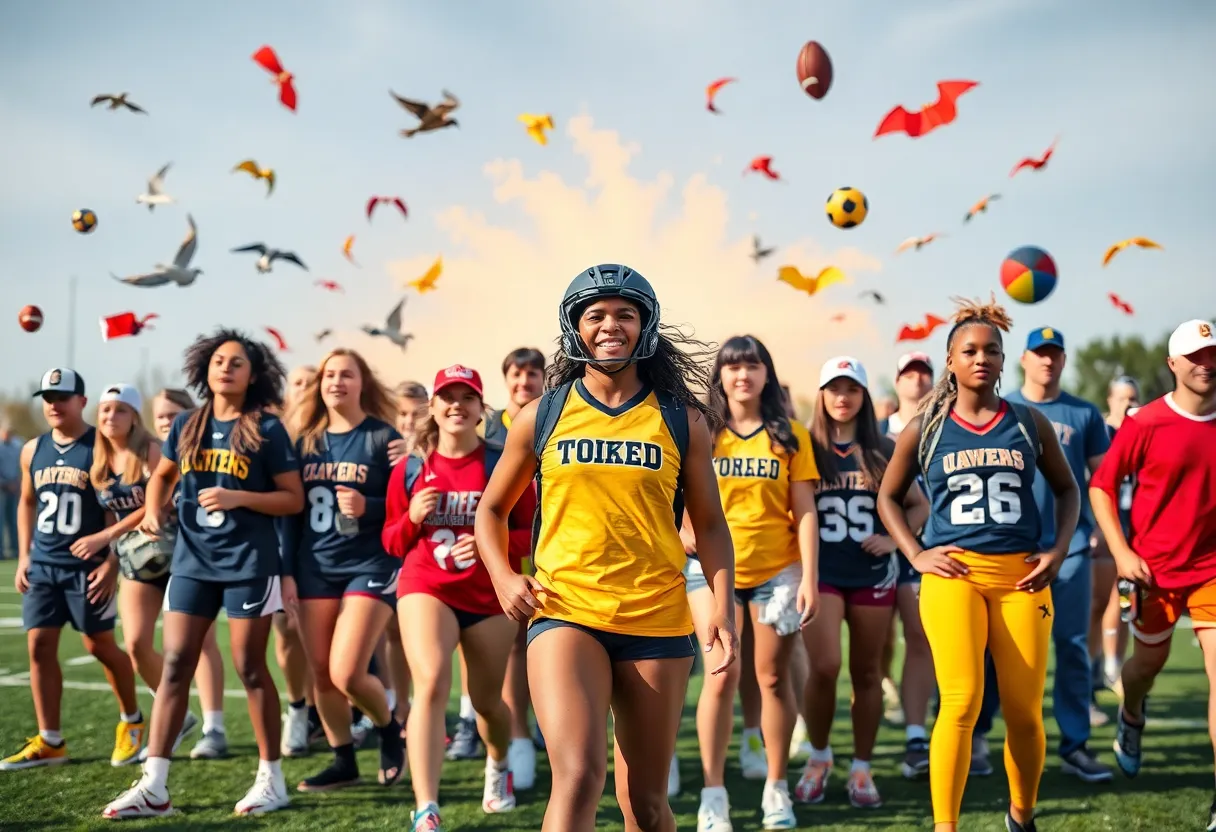News Summary
Governor Brian Kemp’s executive order allows Georgia colleges to directly compensate student-athletes for their name, image, and likeness (NIL) rights. This landmark decision aims to align Georgia with other states embracing this change and opens new opportunities for supporting student-athletes. Concurrently, the retirement of Georgia Tech’s women’s basketball coach adds to the evolving landscape of college sports in the state, prompting discussions on the implications of NIL compensation on competition and coaching.
Atlanta Sparks Change in College Sports!
Exciting news has taken over the world of college athletics in Georgia as Governor Brian Kemp has signed an executive order that promises to shake things up for athletic programs across the state. This groundbreaking move allows colleges and universities to directly compensate student-athletes for their name, image, and likeness (NIL) rights, marking a pivotal moment in how college sports can operate in Georgia.
A Big Step Forward for Athletes
With the executive order in full effect, institutions like Lander University and other schools within the state are now officially encouraged to explore new avenues for supporting their student-athletes. The order beautifully aligns Georgia with states like Virginia, where similar legislation allowing direct payments to athletes has already taken root. Athletic directors from various schools have expressed their enthusiasm over this positive shift. They recognize that providing such opportunities for student-athletes is essential for maintaining competitive edge in the ever-evolving world of college sports.
Goodbye to a Coaching Star
This moment of change coincides with a significant event in women’s basketball as Nell Fortner, the long-time coach of the Georgia Tech Yellowjackets, announced her retirement after six seasons. Under her leadership, the team boasted an impressive record of 110 wins against just 75 losses, including three trips to the NCAA tournament and three seasons with at least 20 wins. Despite her accomplishments, Fortner recently shared her concerns about the current climate in college athletics, marked by increased demands associated with NIL deals and the transfer portal.
Meanwhile, LaSondra Barrett, Fortner’s assistant, will step in as the Interim Head Coach while Georgia Tech begins the search for its new leader. This transition may complement the state’s movements in supporting athletes more directly, as administrators work to navigate changes and uncertainty in the coaching landscape.
Georgia’s Athletic Landscape Transforming
Georgia’s executive order not only permits compensating student-athletes but also includes a crucial stipulation: it protects Georgia universities from facing NCAA sanctions for providing such compensation. Historically, the NCAA has denied any form of direct payments, but it is currently in negotiations for a potential antitrust settlement that could alter how the organization addresses NIL concerns. Rumors suggest that there might be a cap imposed on the total amount that athletes can be paid, which could exceed $20 million.
It’s noteworthy that while the prospect of paying players now exists, both Georgia and Georgia Tech are treading carefully. They have indicated that they are not rushing to pay players immediately. However, the new legislative environment gives them the choice to act if their rivals begin offering such benefits to student-athletes.
A National Trend
Georgia is not alone in this movement; other states like Missouri are also working towards similar legislation to allow students to receive compensation for their contributions to college sports. The tides are turning, and the demand for fair compensation in collegiate athletics is growing stronger every day. If other states follow suit, we may soon see a wave of changes that redefine the role of student-athletes across the nation.
What’s Next?
As universities and colleges in Georgia adapt to these newfound rules, it remains to be seen how they will implement compensation measures for their student-athletes. Will this lead to an even more competitive atmosphere among colleges? How will current athletes respond? As Georgia steps boldly into the future of athletics, it remains a captivating time for fans, players, and coaches alike!
This is only the beginning, and one thing is for sure – the landscape of college athletics in Georgia is changing, and it will surely benefit those who have dedicated their lives to the sport. Stay tuned for future updates!
Deeper Dive: News & Info About This Topic
HERE Resources
Additional Resources
- ESPN: Georgia Governor Signs Order Allowing Schools to Pay Players
- Post and Courier: USC Aiken Men’s Basketball Comes from Behind to Beat Georgia College
- BVM Sports: Lions Earn Sweep Over Georgia College
- Google Search: College Sports NIL
- AP News: Georgia Universities Transgender Women in Sports
- Wikipedia: Name, Image, Likeness
Author: HERE Greenwood
The GREENWOOD STAFF WRITER represents the experienced team at HEREGreenwood.com, your go-to source for actionable local news and information in Greenwood, Greenwood County, and beyond. Specializing in "news you can use," we cover essential topics like product reviews for personal and business needs, local business directories, politics, real estate trends, neighborhood insights, and state news affecting the area—with deep expertise drawn from years of dedicated reporting and strong community input, including local press releases and business updates. We deliver top reporting on high-value events such as the Festival of Flowers, Greenwood Community Theatre performances, and agricultural showcases at the Greenwood County Fairgrounds. Our coverage extends to key organizations like the Greenwood Chamber of Commerce and the Greater Greenwood United Ministry, plus leading businesses in manufacturing and healthcare that power the local economy such as FujiFilm Manufacturing and Self Regional Healthcare. As part of the broader HERE network, including HERECharleston.com, HEREColumbia.com, HEREGreenville.com, and HEREHiltonHead.com, we provide comprehensive, credible insights into South Carolina's dynamic landscape.





